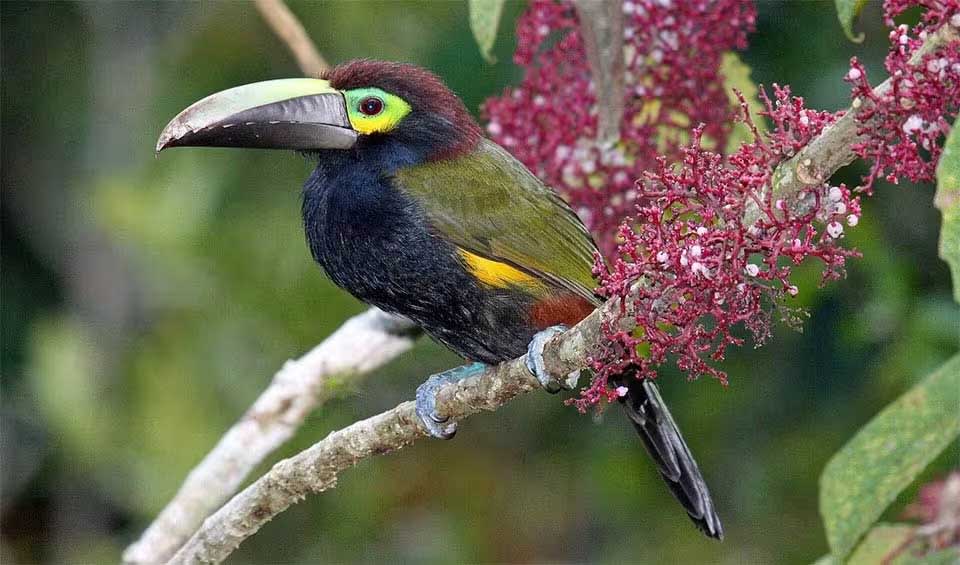Often referred to as the sulfur-breasted or rainbow-billed toucan, this species is celebrated for its stunning appearance and charismatic presence in its natural habitat. Recognized as the national bird of Belize, the yellow-eared toucanet holds cultural and symbolic importance in the regions where it is found.
Stretching across tropical woodlands from southern Mexico to Colombia, the yellow-eared toucanet inhabits a diverse range of ecosystems, including dense forests, woodland patches, and even cultivated areas where suitable food sources are available. This adaptability allows it to thrive in various environments, contributing to its widespread distribution throughout its range.
As an omnivorous woodland bird, the yellow-eared toucanet boasts a diverse diet that includes a wide array of food items. While fruits and seeds form the bulk of its diet, it also supplements its meals with insects, invertebrates, lizards, snakes, and even small birds and their eggs. This dietary flexibility enables the yellow-eared toucanet to exploit a range of food resources, ensuring its survival in its dynamic and ever-changing habitat.
One of the most striking features of the yellow-eared toucanet is its colorful plumage, which includes vibrant hues of yellow, green, and red. Its bill, in particular, showcases a remarkable rainbow-like pattern, adding to its overall beauty and allure. This captivating appearance makes the Yellow-eared toucanet a sought-after sight for birdwatchers and nature enthusiasts alike, drawing attention to its conservation needs and ecological importance.
Distribution
 Colombia
Colombia Costa Rica
Costa Rica Ecuador
Ecuador Honduras
Honduras Nicaragua
Nicaragua Panama
PanamaAnything we've missed?
Help us improve this page by suggesting edits. Glory never dies!
Suggest an editGet to know me
Terrestrial / Aquatic
Altricial / Precocial
Polygamous / Monogamous
Dimorphic (size) / Monomorphic
Active: Diurnal / Nocturnal
Social behavior: Solitary / Pack / Herd / Flock
Diet: Carnivore / Herbivore / Omnivore / Piscivorous / Insectivore
Migratory: Yes / No
Domesticated: Yes / No
Dangerous: Yes / No




